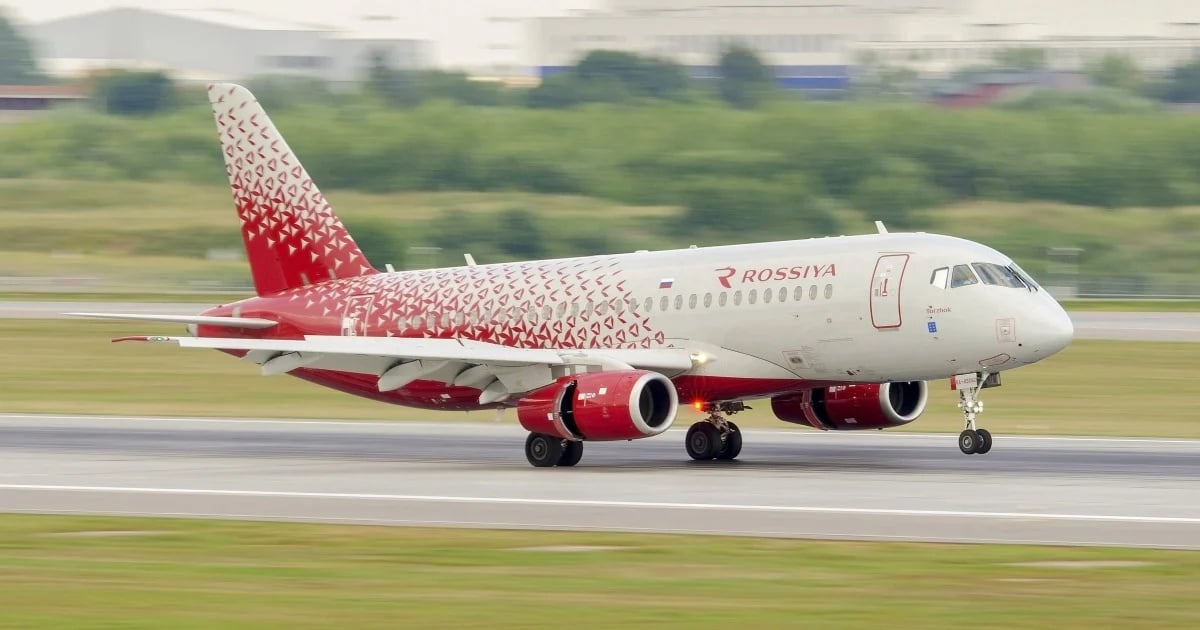
Cuban aviation authorities have canceled previous notices regarding a shortage of fuel for aircraft, allowing for the uninterrupted continuation of the flight program between Russia and Cuba.
This was reported on Sunday by the Federal Air Transport Agency of Russia (Rosaviatsiya) in a statement cited by the Russian press.
According to Rosaviatsiya, the NOTAMs - notices to aircraft - warning about the fuel shortage at the airports in Havana and Varadero, initially scheduled for the period from December 1 to 8, are no longer in effect.
"The flight program between Russia and Cuba will proceed as scheduled, according to the announcement, which did not provide further details on how Cuba addressed the issue."
Supervision and normalization of air traffic
The information warns that the Federal Air Transport Agency of Russia, in conjunction with the Russian Ministry of Transport, will continue to closely monitor the air traffic situation between both nations to safeguard the interests of airlines and passengers.
The representative of Rosaviatsiya, Artem Korenyako, confirmed on his Telegram channel that the flights will proceed according to the original schedule.
However, I had previously warned that the NOTAMs issued by the Cuban authorities could lead to adjustments in flights due to a shortage of JET-A1 aviation fuel.
As of the publication of this note, only Telesur has reported on the cancellation of the announcement, while the official Cuban press has not mentioned it at any point prior.
The information was released through a post on X by the Russian Embassy in Cuba and on Facebook groups related to Cuban aviation.
Air operations and airlines involved
Flights between Russia and Cuba are operated by the airlines Rossiya (part of the Aeroflot group) and Nordwind.
Aeroflot announced that its flight to Havana on December 1st proceeded as scheduled, with the caveat that any changes would be communicated to passengers.
Nordwind, for its part, confirmed that it was awaiting official confirmation of the fuel resupply at Varadero airport to operate the Varadero-Sheremetyevo route.
In a recent incident, a Moscow-Varadero flight was delayed at Sheremetyevo Airport due to these circumstances.
Tourism is one of the main sources of income for Cuba, and Russia ranks third among the countries with the most visitors to the Caribbean nation, with 185,000 Russian tourists recorded so far this year, an increase of 8% compared to the previous year.
In parallel, Russia has provided significant assistance to Cuba, including the delivery of 80,000 tons of diesel fuel valued at 60 million dollars, following the devastation caused by hurricanes Oscar and Rafael.
Frequently Asked Questions about Fuel Shortages and Flights Between Russia and Cuba
Why was the fuel shortage alert in Cuba canceled?
Cuban authorities have canceled the fuel shortage warnings for aircraft, allowing the flight program between Russia and Cuba to continue without disruptions. However, the cancellation of the warning does not clarify how the fuel supply issue was resolved.
Which airlines are involved in flights between Russia and Cuba?
The main airlines operating flights between Russia and Cuba are Rossiya, part of the Aeroflot group, and Nordwind. Both airlines are coordinating their flights based on the availability of fuel at Cuban airports.
How does the fuel situation affect tourism in Cuba?
The fuel shortage is impacting tourism in Cuba, as it could lead to delays and cancellations of flights, especially during the high season. Tourism is vital for the Cuban economy, with Russia being one of the main sources of tourists.
What measures is Russia taking to support Cuba during the energy crisis?
Russia has offered to supply 80,000 tons of diesel fuel to Cuba as part of its assistance in response to the energy crisis. This support is valued at $60 million and aims to alleviate the country's energy challenges.
Why is JET-A1 aviation fuel important?
JET-A1 is a type of refined kerosene essential for aviation turbine engines, enabling optimal performance under various conditions. Its scarcity directly impacts the operational capacity of commercial flights to and from Cuba.
Filed under: